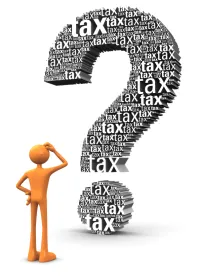Early on December 2, 2017, the Senate passed the Tax Cuts and Jobs Act (the “Senate Bill”). This blog entry describes certain provisions of the Senate Bill that would have the most significant impact on the nonprofit community, including important differences between the Senate Bill and the prior version of the Senate bill and the bill passed by the House of Representatives (the “House Bill”) (both of which we described several weeks ago in “Updates for Tax-Exempt Organizations from the Senate Markup to the Tax Cuts and Jobs Act”).
Unless otherwise noted, all proposals described below would be effective for taxable years beginning after December 31, 2017.
Excise tax on net investment income of private colleges and universities
The Senate Bill includes the imposition of a 1.4% excise tax on the annual net investment income of private institutions of higher education that have assets with an aggregate fair market value of at least $500,000 per student (other than those assets which are used directly in carrying out the institution’s exempt purpose) and at least 500 tuition-paying students, and on related tax-exempt organizations. The prior version of the Senate bill and the House version of the bill included a $250,000 per student threshold The House Bill includes in these calculations the investment income and assets of related organizations, while the Senate Bill does not include investment income and assets of related organizations to the extent that (a) the related organization is not controlled by, or a supporting organization to, the educational institution and (b) they are not intended or available for the use of the educational institution. This provision would effectively parallel the existing excise tax on the net investment income of private foundations, which the House Bill has proposed to streamline to 1.4%.
Expansion of excise tax on tax-exempt organizations and certain highly-compensated employees
The Senate Bill as well as the House Bill would impose a 20% excise tax on compensation of more than $1 million paid by any tax-exempt organization to any of its top-five highest compensated employees (including all wages and many benefits but not contributions to certain tax-advantaged retirement plans). This new rule effectively parallels the existing $1 million deductibility limitation for executive compensation paid by publicly traded companies. This will potentially impact executives and other highly compensated employees of large tax-exempt entities. Notably, athletic coaches at educational institutions, as well as commissioners and other senior executives of other tax-exempt sports entities would potentially be included among the affected employees.
The 20% excise tax to be paid by the organization would also apply to certain severance “parachute payments” that are paid to covered employees in excess of the employee’s “base amount” of compensation. The methodology for calculating this excise tax is similar to the methodology for determining the excise tax on excess parachute payments paid to certain employees upon a corporation’s change of control under Code sections 280G and 4999.
However, the Senate Bill does not include the provision in the prior version that would have explicitly classified investment advisors and athletic coaches at most institutions of higher education as disqualified persons who are personally subject to substantial penalties on excess benefit payments. The Senate Bill also does not include the provision contained in the prior version that would have repealed the “rebuttable presumption” that compensation is reasonable if the organization follows certain procedures. The House Bill also would not alter the rebuttable presumption.
No inclusion of name and logo licensing income for tax-exempts in taxable UBTI
The Senate Bill does not contain the provision in the prior version that would have classified royalty income derived from the licensing of a tax-exempt organization’s name or logo as unrelated business taxable income (“UBTI”). Thus, under the Senate Bill, there would be no change to current law. The House Bill similarly does not include a proposal on this point.
UBTI separately computed for each trade or business
The Senate Bill includes a provision requiring the computation of UBTI for each separate unrelated trade or business, which (depending on the particular facts) could limit the use of losses from an unrelated trade or business losses to offset income from a separate profitable unrelated trade or business.
Tax-exempt status for professional sports leagues remains intact
Under the Senate Bill (and the House Bill), professional sports leagues remain eligible for tax-exempt status.
Changes to tax-exempt bond rules
Like the House Bill, the Senate Bill provides for the repeal of the tax-exemption for advance refunding bonds. Unlike the House Bill, the Senate Bill leaves unaffected the tax exemption of interest on qualified private activity bonds. The Senate Bill also does not include the provision contained in the House Bill prohibiting the use of governmental tax-exempt bonds, issued to finance the construction of, or capital expenditures for, a professional sports stadium, effective for bonds issued after November 2, 2017.
No deduction for amounts paid in exchange for college athletic seating rights
The Senate Bill and the House Bill both would provide that no charitable deduction is allowed for any payment made to an institution of higher education in exchange for the right to purchase tickets or seating for athletic events. These proposals effectively repeal the existing special rule that allows the purchaser to take a charitable deduction of 80% of the amount paid for the right to purchase the tickets.







 />i
/>i
